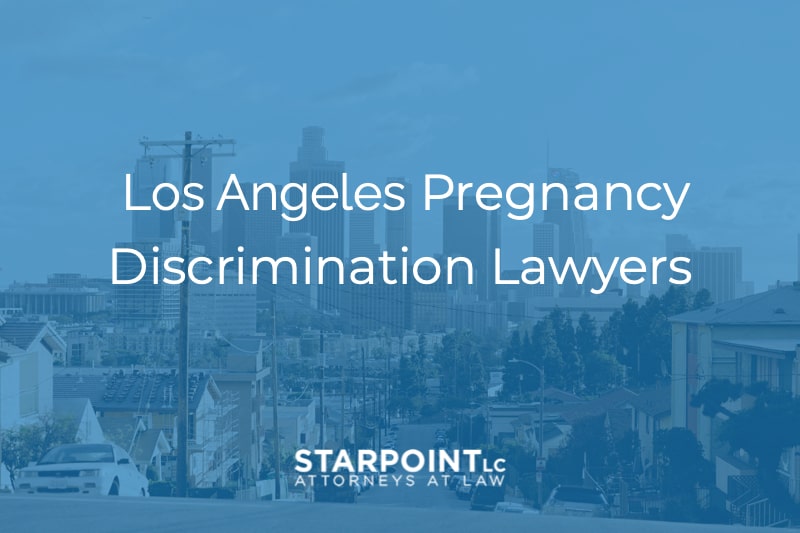
For many, pregnancy represents an exciting period of transition in life.
However, for some, the news of pregnancy may be shrouded by the discriminatory practices of your employer.
It’s important to know your rights and how state and federal laws protect these rights as you progress through your pregnancy.
California lawyers for pregnancy discrimination understand the nuance of California labor laws regarding pregnancy.
What Is California Pregnancy Discrimination?
California pregnancy discrimination occurs when a pregnant employee or job applicant receives less favorable treatment based on their pregnancy.
California pregnancy discrimination may take several forms including:
- Termination;
- Demotion;
- Failure to promote;
- Failure to provide accommodations or leave;
- Refusal to hire; or
- Failure to provide bonuses or benefits.
Pregnancy discrimination also appears in other less subtle forms.
If you believe your employer discriminated against you based on your pregnancy, don’t attempt to protect your rights alone.
Contact pregnancy discrimination lawyers to review California labor laws regarding pregnancy and your rights.
What Are the Labor Laws Regarding My Rights to Maternity Leave?
California and federal labor laws provide pregnant workers various protections for pregnancy-related conditions.
Lean on the expertise of pregnancy discrimination lawyers to assist you in analyzing your protections as you prepare to take leave.
Additionally, if your employer engaged in discriminatory practices based on your pregnancy, pregnancy discrimination lawyers help you analyze your situation and assert your rights.
Federal Protections
The Pregnancy Discrimination Act of 1978 represents an amended portion of the Title VII Civil Rights Act of 1964, affording women greater protection against pregnancy discrimination.
The Act protects against discrimination based on:
- Pregnancy,
- Childbirth, and
- Related medical conditions.
The Act prohibits different, and often negative, treatment of women due to their pregnancy.
As a result of the Act, more women continue to work further into their pregnancies without leaving their jobs.
The Pregnancy Discrimination Act of 1978 also requires employers to make the same accommodations provided to similarly disabled employees.
For example, the following changes must be made for those pregnant while working:
- Lighter duty,
- Modified tasks,
- Alternative assignments,
- Disability leave, and
- Leave without pay.
Despite the Act, many women continue to experience pregnancy discrimination in the workplace.
Contact lawyers for pregnancy discrimination if your employer subjected you to discriminatory practices due to your pregnancy.
Family and Medical Leave Act
The Family and Medical Leave Act (FMLA) provides eligible parents the ability to take three months leave to care for their new child in several ways, including:
- Child medical checkups;
- Inability to work due to pregnancy;
- Serious health conditions associated with pregnancy or childbirth; and
- Parental leave.
Not all workers receive the protections afforded by the FMLA. For example, the law provides FMLA protections for employees who:
- Work for a covered employer;
- Have worked for their employer for at least one year;
- Have worked at least 1,250 hours for the employer during the prior year; and who
- Work at a location where the employer employs at least 50 workers within 75 miles.
The complexities of the FMLA often require the assistance of pregnancy discrimination lawyers. Ensure your protection under the FMLA by contacting pregnancy discrimination lawyers today.
State Protections
The California Fair Employment and Housing Act (FEHA) prohibits discrimination based on pregnancy or childbirth. This law applies to all employers with five or more employees.
The FEHA also requires employers to make reasonable accommodations for pregnant women with medical restrictions due to their condition.
The California Family Rights Act (CFRA) applies to employers employing five or more employees.
The Act requires employers to provide up to four months of unpaid leave to employees unable to work due to pregnancy.
If the employer is eligible under the FMLA, the worker may take off an additional three months after the four months afforded under the CFRA.
Employee Fringe Benefits For Pregnancy
Some other benefits provided to pregnant workers include the right to wage replacement due to the disability of pregnancy.
California’s State Disability Insurance or SDI does not provide employees with a right to take leave.
Instead, it provides replacement income when an employee is on approved leave.
Pregnancy disability lawyers assist clients in determining their eligibility for wage replacement through SDI.
The actual wage earned during leave depends on the employee's earnings during the 5-18 month period before they take leave. In addition, this benefit holds the potential to last the duration of the entire leave period.
SDI benefits make up the difference between SDI payments and actual full pay earned by the employee.
California labor laws for pregnancy reduce SDI payments if more sick leave is used over the leave period.
California Paid Family Leave or PFL also provides workers with wage replacement for up to six weeks to bond with a new child. Employees eligible for wage replacement under SDI are also eligible for wage replacement under PFL.
This benefit is available the first 12 months after the birth of a child.
Contact Us
The attorneys at Starpoint Employment Law founded their firm on some core principles.
One of those principles is establishing meaningful attorney-client relationships while working to achieve satisfying legal results.
We understand the stress you must be under as you navigate a new pregnancy while experiencing discriminatory treatment at work.
Let us focus on protecting your rights so you can focus on enjoying this exciting period in your life.
Contact our office today to discuss your rights with our pregnancy discrimination lawyers.
